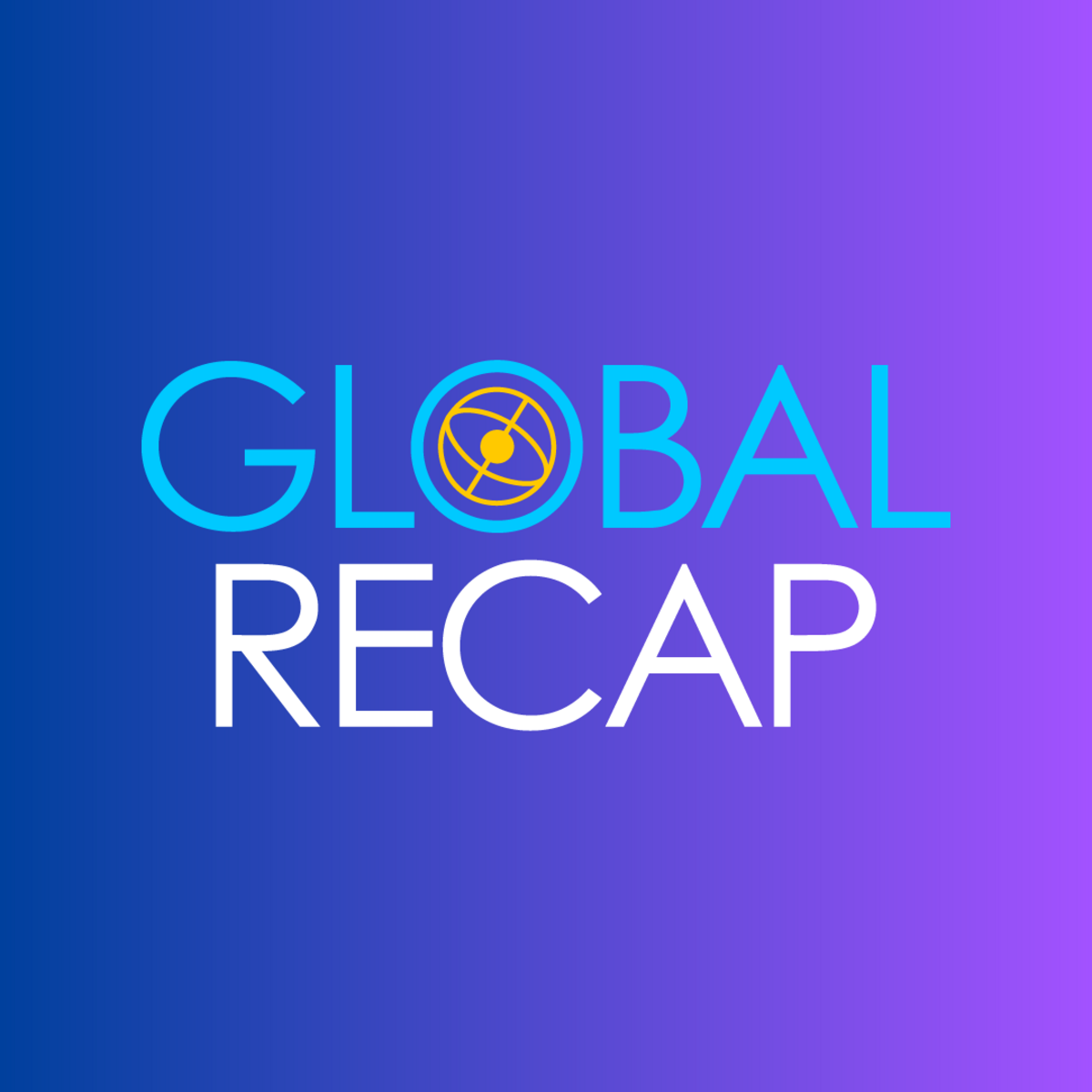
Hi Global Recap readers,
Happy New Year everybody!
Here at Global Recap, we’ve seen great growth—thanks to you!
Our readership is up,
the newsletter design is better (thanks for your feedback), and
community engagement has been amazing with all the polls and opinions.
I hope you’ve experienced growth in yourself and those special people around you, and that you stick to all your New Year’s resolutions this year!
However, not everyone greeted 2025 with a smile—German President and Chancellor were hit with insults from none other than Elon Musk. 👇️
🇩🇪 GERMANY
Elon Musk Insults German President
Elon Musk has added another name to his list of European politicians he’s insulted: the German President Frank-Walter Steinmeier.
The Insult
Musk’s latest jab came via X, where he called Steinmeier an “anti-democratic tyrant.”
The insult was in response to Steinmeier’s speech on the dissolution of the Bundestag.
Musk’s post was a reaction to criticism from AfD-affiliated influencer Naomi Seibt.
Steinmeier’s office noted the post but chose not to comment.
✍🏻 Context: The name “Kekius Maximus” might throw you off, but it’s just Elon Musk being Elon. He recently changed his name to it and joked that reporters will now have to call him “Kekius Maximus” in their articles.
Previous Insults
This isn’t Musk’s first jab at European leaders, though.
In November, Musk called Chancellor Olaf Scholz a “fool” in German.
He also predicted Scholz would lose the upcoming German election in February, purposefully misspelling his name in the process.
Scholz’s Response
Germany’s Chancellor, Olaf Scholz, has called out Elon Musk, even bringing him up in his New Year’s speech.
He emphasized that "the vast majority of reasonable and decent people" would decide the election's outcome.
Scholz made it clear that "it's not up to the owners of social media" to determine Germany's future.
Political Reactions
German politicians are not taking Musk’s actions—or his support for the right-wing AfD party—lightly.
Vice Chancellor Robert Habeck accused Musk of "strengthening those who are weakening Europe."
Habeck also emphasized the need to limit Musk’s influence, calling for Europe to use its power consistently.
The government and politicians across the spectrum have condemned Musk's attempts to influence the election.

🇨🇳 CHINA
Xi's Taiwan Reunification Pledge
China's President Xi Jinping has made it clear: Taiwan's “reunification” with China is inevitable.
In his New Year's speech, Xi laid down a stern warning to pro-independence forces both within and outside Taiwan.
(Xi talks about Taiwan at 10:53)
Xi's Bold Claim
In his New Year's speech on December 31, 2024, Xi declared that "no one can stop China's reunification with Taiwan."
He emphasized the historical trend of national reunification and the unbreakable family bonds between people on both sides of the Taiwan Strait.
Military Pressure
China's military presence around Taiwan is becoming the new normal.
Over the past year, Beijing has ramped up military activities near Taiwan, sending warships and planes almost daily.
Taiwanese officials see this as an effort to "normalize" China's military presence around the island.
Earlier this month, China staged a large massing of naval forces around Taiwan after Lai's stopovers in Hawaii and Guam.
Taiwan's Stance
However, Taiwan isn't backing down from its position.
Taiwan's government rejects Beijing's claims and insists that only its people can decide their future.
The new president, Lai Ching-te, deemed a "separatist" by Beijing, took office in May 2024, further straining relations.
US Involvement
The US continues to play a significant role in the Taiwan-China dynamic.
US arms sales to Taiwan, allowed by the Taiwan Relations Act, have been a point of contention with Beijing.
China has warned the US against military ties with Taiwan and imposed sanctions on military suppliers.
However, many understandably fear this could turn into another situation like the Ukraine-Russia war, where the US ends up committing billions in aid to a foreign country.

🇺🇸 UNITED STATES
US Ramps Up
Strikes Against Houthis

The US has ramped up its airstrikes on Yemen's Houthis, as tensions with Israel continue to rise.
🎯 Its targets? Key Houthi positions, aiming to curb their regional assaults.
New Airstrikes
On December 31, 2024, the Biden administration directed new airstrikes on Houthi targets in Yemen.
Strikes hit coastal Yemen and the capital, Sanaa, targeting command nodes and weapon facilities.
The operations also destroyed radar positions and one-way aerial drones.
Regional Tensions
The Houthis' campaign has impaired global shipping and affected US allies.
Israel has launched its own airstrikes on Houthi targets in response to missile and drone attacks.
The Houthis proclaimed their maritime campaign in protest of Israel's war against Hamas.
Humanitarian Concerns
Aid organizations are raising alarms over the impact on civilians.
Recent Israeli strikes have hit key Yemeni transport, ports, and infrastructure.
Groups like Oxfam and Save the Children warn of severe consequences for Yemeni civilians.
Israeli strikes have destroyed all tugboats at key Yemeni ports, affecting the availability of imported goods.
Here’s one common theme: why don’t aid organizations call out terrorist attacks that disrupt and harm Israeli civilians? Like the Houthi missile strike on a kids’ playground in Tel Aviv—remember that?

🇨🇮 IVORY COAST
\French Troops Leaving Ivory Coast

Ivory Coast is saying au revoir to French troops, marking a significant shift in the region's military landscape.
President Alassane Ouattara announced the withdrawal in his end-of-year address, signaling a move towards greater autonomy for the West African nation.
Announcement
Ivory Coast wants to take charge of its own defense.
President Ouattara announced on December 31, 2024, that French troops would withdraw from Ivory Coast.
The French-run military infantry battalion of Port Bouët will be handed over to Ivorian troops.
Regional Impact
This move is part of a broader trend in West Africa.
Senegal also announced the closure of French military bases, with the withdrawal to be completed by the end of 2025.
France has already pulled its soldiers out of Mali, Burkina Faso, and Niger following military coups and rising anti-French sentiment.
Historical Context
Ivory Coast's journey to this point has been rather bumpy.
An armed rebellion in 2002 split the nation in two, leading to years of peace deals and renewed violence.
Despite instability, Ivory Coast remains a key player in the global market.
Ivory Coast is the world's largest exporter of cocoa beans.
Its citizens enjoy a relatively high level of income compared to other countries in the region.
Future Prospects
What's next for Ivory Coast and the region?
France will retain a small military presence in Gabon.
Military leaders in Niger, Mali, and Burkina Faso have moved closer to Russia, deploying mercenaries to fight jihadist insurgents.
Political watchers believe France is devising a new military strategy to downscale its permanent troop presence in Africa.






